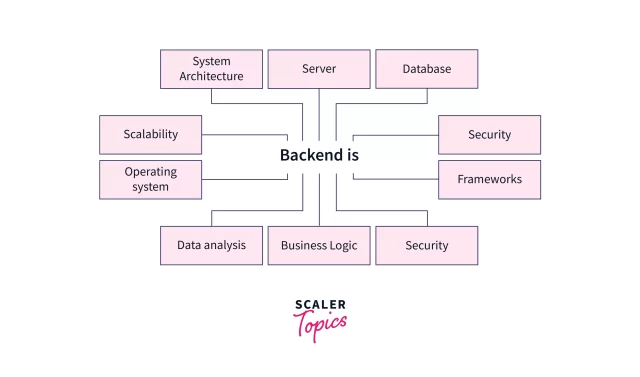In the ever-evolving landscape of software development, backend technologies play a pivotal role in ensuring the functionality, performance, and security of applications. This log explores ten essential backend technologies that are widely recognized and utilized across various industries.
- Java
Java is widely used for its platform independence and robustness. It is known for its scalability and is frequently employed in enterprise-level applications where reliability and performance are paramount.
- Node.js
Node.js is renowned for its event-driven architecture, which allows for highly scalable and efficient backend development. It utilizes JavaScript, making it popular among developers who work on both frontend and backend development.
- Python
Python’s simplicity and readability make it a favorite for backend development. It is valued for its versatility, supporting various frameworks like Django and Flask, which facilitate rapid development and maintainability.
- Ruby on Rails
Ruby on Rails, often referred to as Rails, follows the principle of convention over configuration, promoting developer productivity. It is celebrated for its elegant syntax and extensive libraries, ideal for building web applications swiftly.
- PHP
PHP remains a stalwart in backend development, particularly for web applications. It powers popular content management systems (CMS) like WordPress and Drupal, leveraging its ease of integration and extensive community support.
- ASP.NET
ASP.NET, developed by Microsoft, is favored for building dynamic web applications and services. It supports multiple languages, including C#, and offers robust tools for security and performance optimization.
- Go (Golang)
Go, known for its concurrency support and efficient compilation, has gained traction in backend development. Its statically typed nature ensures reliability, making it suitable for building scalable systems, especially in cloud environments.
- Scala
Scala combines object-oriented and functional programming paradigms, making it suitable for developing complex backend systems. It interoperates seamlessly with Java, utilizing the Java Virtual Machine (JVM) for high performance.
- Express.js
Express.js, a minimalist web framework for Node.js, simplifies the creation of robust APIs and web applications. It emphasizes flexibility and speed, making it a preferred choice for developers seeking lightweight backend solutions.
- Spring Framework
The Spring Framework for Java provides comprehensive infrastructure support for developing Java applications. It promotes modularity and testability, offering features like dependency injection and aspect-oriented programming.
Each of these backend technologies plays a crucial role in modern software development, catering to diverse needs ranging from scalability and performance to maintainability and security. Whether developers opt for Java’s enterprise-grade reliability, Node.js’s event-driven efficiency, or Python’s versatility, the choice ultimately depends on the specific requirements and objectives of the project.
In conclusion, staying abreast of these backend technologies is essential for developers looking to build robust, scalable, and efficient applications. Each technology brings its unique strengths to the table, ensuring that backend systems can meet the demands of today’s increasingly complex digital landscape.










